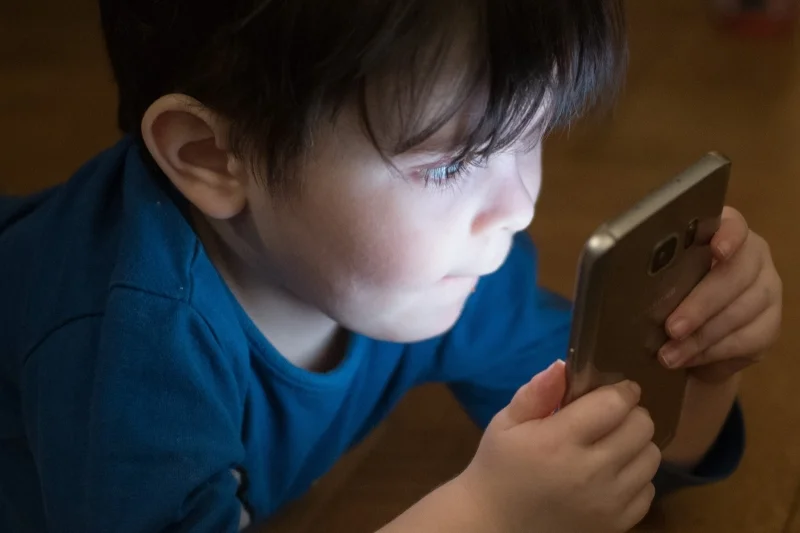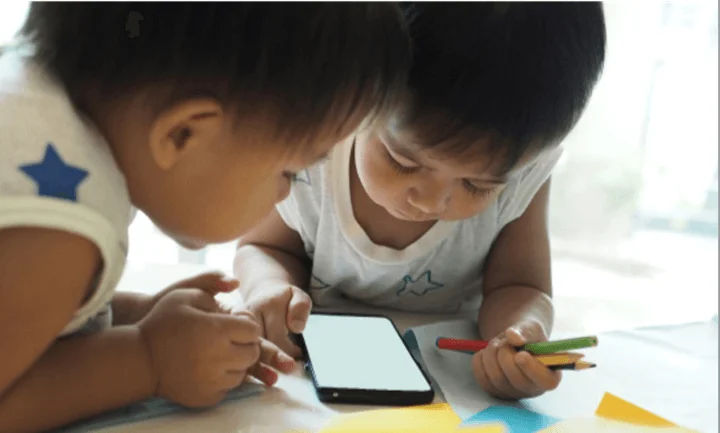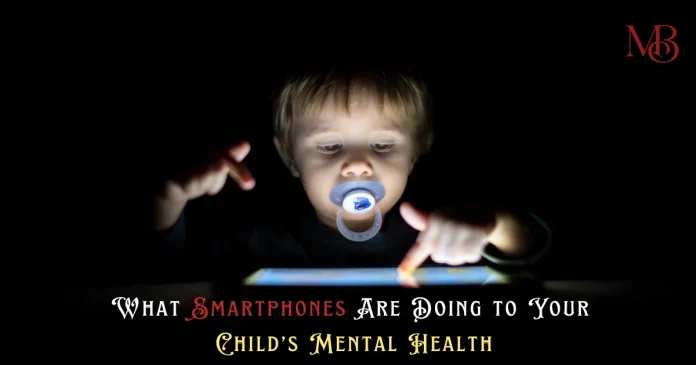Impact of Smartphones: In today’s world, smartphones are everywhere. They are part of our daily lives. But have you ever wondered what effect they have on children? More kids now own smartphones at younger ages. While these devices offer many benefits, they also come with risks. This blog explores how smartphones affect a child’s mental health and what parents can do to protect their kids.
The Growing Trend of Smartphone Use Among Children
Children today inhabit a digital landscape vastly different from previous generations. Many acquire their first smartphone at a young age, and by their teenage years, they dedicate a significant portion of their day to these devices. Social media, gaming, and video content dominate their online interactions.
This transformation in childhood behavior has sparked apprehension among parents, educators, and health professionals. Concerns arise regarding the potential impact on social skills, mental health, and academic performance. As children become increasingly immersed in the digital world, the challenge lies in striking a balance that ensures responsible and healthy technology usage.
The Positive Impact of Smartphones
Smartphones are not all bad. They help children stay connected with friends and family. Educational apps and videos can support learning. Children can access information quickly and develop new skills. Smartphones also help boost creativity through drawing, music, and storytelling apps. These are the positive Impact of Smartphones.

For shy or introverted children, smartphones can be a way to express themselves. Some kids find it easier to interact online than in person. This can boost their confidence and help them feel included.
The Dark Side: Negative Impact of Smartphones
Impact of Smartphones, despite the benefits, excessive smartphone use can harm a child’s mental health. Here are some key areas of concern:
1. Increased Anxiety and Depression
Studies show a link between heavy smartphone use and higher rates of anxiety and depression in children. Social media plays a big role. Kids often compare themselves to others, leading to low self-esteem. Negative comments and cyberbullying can worsen these feelings.
2. Sleep Disruption
Many children use their phones late at night. This can interfere with sleep. The blue light from screens affects melatonin production, making it harder for kids to fall asleep. Lack of sleep leads to mood swings, poor concentration, and low energy.
3. Reduced Attention Span
Constant notifications and quick access to entertainment make it difficult for children to focus. Over time, this reduces their attention span. Children who spend too much time on smartphones may struggle to concentrate in school.
4. Social Isolation
While smartphones help kids connect online, they may reduce face-to-face interactions. Children might prefer texting over talking, leading to weaker social skills. They may also avoid outdoor activities, which can affect their physical health.
How Parents Can Help in Improving the Impact of Smartphones
Parents play a crucial role in managing their child’s Impact of Smartphones. Here are some practical tips:
1. Set Limits on Screen Time
The American Academy of Pediatrics recommends no more than one to two hours of screen time per day for young children. Encourage kids to take regular breaks and balance their screen time with other activities.
2. Encourage Outdoor Activities
Physical activity is essential for mental well-being. Encourage children to play outside, join sports teams, or take up hobbies that do not involve screens.
3. Be a Role Model
Children often copy their parents’ behavior. Limit your own screen time and engage in offline activities. Family game nights, reading, and outdoor trips can strengthen your bond with your child.
4. Talk to Your Child
Open communication is key. Talk to your child about the risks of excessive smartphone use. Encourage them to share their experiences online, including any negative interactions.
5. Monitor Content
Keep an eye on the apps and websites your child uses. Use parental controls to block harmful content. Ensure they use age-appropriate platforms and understand online safety.

When to Seek Professional Help on Impact of Smartphones
Significant changes in your child’s mood or behavior can be a sign of an underlying mental health issue. These changes might include social withdrawal, irritability, sleep disturbances, or a decline in academic performance. If you observe these signs, it is crucial to seek professional help.
A mental health professional can accurately diagnose the problem and provide appropriate treatment. Early intervention is key to preventing long-term consequences and ensuring your child’s well-being. Remember, seeking help is a sign of strength, and it’s essential to prioritize your child’s mental health.
You might also like: How Kindness is Fueling a Silent Health Crisis in India by Feeding Pigeons
Impact of Smartphones On Your Child’s Mental Health
Smartphones have become an integral part of our daily lives, and children are no exception to this trend. While these devices offer numerous benefits, excessive use can negatively impact a child’s mental well-being.
You might also like: 04 December, Allu Arjun Incident is a Reminder That Crowd Safety is Everyone’s Responsibility
Parents play a crucial role in guiding their children towards the healthy Impact of Smartphones. By establishing clear boundaries, promoting offline activities, and fostering open communication, parents can ensure that technology serves as a tool for learning and development rather than a source of stress and anxiety. Striking a balance between online and offline engagement is essential for children to thrive in the digital age. Follow our Odyssey page for more such articles.
FAQs
1. At what age should a child get a smartphone?
There is no fixed age, but many experts suggest waiting until the child is at least 12. Consider the child’s maturity and ability to handle responsibilities.
2. How can I reduce my child’s screen time?
Set daily limits, encourage outdoor play, and create screen-free zones at home, like during meals or bedtime.
3. Are educational apps helpful for children?
Yes, educational apps can be beneficial. However, balance is important. Ensure screen time is combined with physical and creative activities.
4. How do I know if my child is addicted to their smartphone?
Signs of addiction include mood swings, irritability without the phone, lack of interest in other activities, and poor academic performance. If you notice these signs, take action early.


